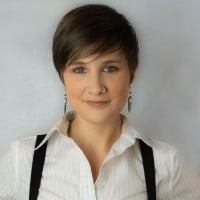Women represent almost half of the global population, but when it comes to economic empowerment and power balance, it will be 132 years to see a world with complete gender equality, unless we dramatically increase the pace of change. Despite the increasing share of women in the paid workforce and leadership roles in recent years, limiting factors like the legal environment, employer policies, and unjust societal expectations continue to affect women’s path to parity.
According to one estimate by OECD, if women’s participation in the economy matched men’s, they could add $26 trillion to the global economy by 2025, with the highest potential being in developing economies. At a time when economies are still battling with the fears of a global recession, increasing concerns for climate change, and lingering effects of the pandemic, gender-gap imbalances have become strikingly prominent.
The solution lies in mainstreaming gender equality in business
Research has repeatedly supported the positive impacts of women’s empowerment and leadership on business growth and the bottom line. There is also a growing interest in gender lens investing by businesses, but the uptake has been low due to the lack of general standards and tools. As a solution, Mennonite Economic Development Associates (MEDA) developed a unique framework that brings gender to the forefront of business improvement.
The GEM Framework
As a longstanding advocate of women’s economic empowerment and an expert in market systems development, MEDA introduced The Gender Equality Mainstreaming (GEM) framework in 2018. The framework builds upon the Environmental, Social, and Governance (ESG) standards by mainstreaming gender as an integral component of the ESG criteria, rather than just limiting it to the “S” as other frameworks do. The reason for including it in all aspects of ESG is that gender equality affects all elements of the ESG standards.
GEM is essentially a manual for businesses and investors and gives six practical steps from identifying target companies to measuring the impact of gender mainstreaming practices on the overall business. Hence, the idea of this toolkit is to equip businesses to promote gender equality and work towards Goal 5 (Gender Equality) of Sustainable Development Goals.
Who is GEM useful for?
The GEM framework differs from other gender-related industry tools as it centres upon the ESG standards and targets investors (venture capitalists, private and public equity, government donors, and NGOs) and capacity builders (incubators, technical support providers, accelerators, and consultants) who are focusing on business impact and growth, but can be used by other businesses as well. The toolkit has been adapted for use in different countries and languages across the Middle East, Africa, Latin America, and Asia. GEM serves as the starting point for businesses and investors to incorporate more inclusive and environmentally sustainable policies and practices.
The Updated GEM Framework in 2023: Mainstreaming gender and climate
Since its launch, 40 businesses have used the framework with success. In 2022, MEDA began to gather feedback from clients and synthesise learnings to update the tool to incorporate additional elements of diversity, equity, and inclusion. In April 2023, MEDA launched the updated GEM framework to enhance the environmental and climate change components. The objective of the updated toolkit is to support companies in staying ahead of the industry’s ESG investment standards, managing their reputational risks, and gaining competitiveness for finance and investment.
The updated framework includes additional questions and scoring criteria for companies to avoid, reduce, and mitigate negative climate or environmental impacts, while also engaging in conservation efforts. The six-step framework gives companies a roadmap that can be easily tailored to their specific needs and business goals.
Rather than being a tool with rigid processes, it is a flexible tool that guides businesses in a step-by-step manner to improve company capacity from a gendered perspective. At the same time, the framework also offers flexibility regarding the time needed to complete all the steps. However, the impact measurement needs to be done for at least 1 year after following all the steps.
The updated GEM framework can be downloaded from MEDA’s website and can serve as a useful resource for businesses committed to achieving sustainability as a result of pursuing gender equality, economic prosperity, and long-term environmental health.


















